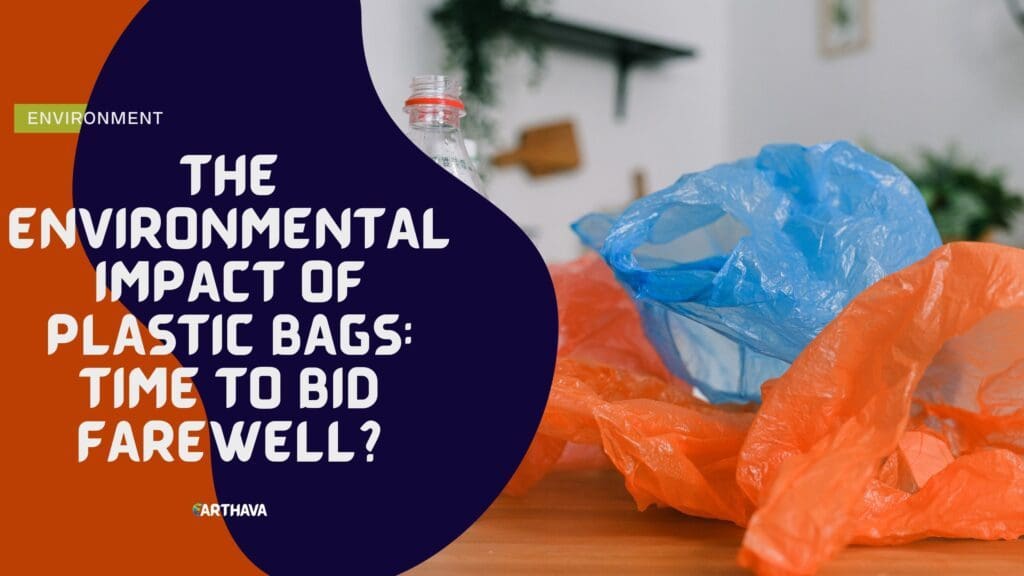Plastic bags have a significant environmental impact, contributing to pollution, wildlife harm, and resource depletion. Their lightweight nature makes them prone to wind dispersion, leading to litter in waterways, landscapes, and oceans. Additionally, the production of plastic bags requires fossil fuels and contributes to greenhouse gas emissions.
Considering these factors, many regions have implemented measures to reduce plastic bag usage, such as imposing fees or banning single-use plastic bags. Alternatives like reusable bags or biodegradable options offer more sustainable choices for consumers and businesses. Embracing these alternatives can help mitigate the environmental impact of plastic bags and promote a cleaner, healthier planet for future generations.

Plastic bags are used once or twice to carry groceries or clothing home from the supermarket or high street retailers, but paper bags are beginning to work their way into the hands of the customer. Although customers will have to pay a small fee for paper bags or reusable canvas bags, they can use and reuse these bags on more than one occasion, more than just carrying groceries.
According to the Paper Bag Company, Americans use around 100 billion plastic bags every year. This statistic is slowly declining and that is largely due to the fee being placed on these bags or because they have been banned entirely from some states.
UK Efforts
The UK and some countries in Europe could follow suit too, with there already being talks held about how we can reduce the amount of plastic use each year. Plastic waste is continuing to damage our parks, our rivers, and our oceans, causing dangers to our water supplies, our diets, and wildlife.
New York Efforts
The next major city to consider the ban on plastics is New York, which could pave the way for a large number of cities to follow the trend.
China Efforts
China has had a ban on plastics stemming back over six years which has resulted in around 1.6 million barrels of oil being saved. With such a Ludacris saving, it is no wonder more and more countries are considering making a ban on plastic bags too.
Though moving towards paper bag also faces the problem of higher costs in their production compared to plastic, the amount of times paper bags can be used and the minimal amount of time they take to biodegrade make them a much wiser choice. So, using plastic bags could be a thing of the past and frankly, we don’t think they will be missed.
The Following portion of the article is sponsored by Calico Bags Australia
Reasons to Say Goodbye to Plastic Bags
1. Plastic Bags Pollute Water and Land
Plastic bags are lightweight, traveling long distances by water and strong winds. Also, plastic bags litter landscapes and get caught in trees and fences. Because plastic bags float in waterways, they end up in rivers, seas, and oceans.
2. Plastic Bags Are Harmful
Plastic bags are harmful to marine life, often mistaken for food by fish and sea turtles. Also, marine wildlife easily becomes suffocated or entangled in plastic bags. For human beings, plastic fragments are consumed by fish and other seafood that come in contact with them. Using reusable bags is highly recommended in Australia.
3. Plastic Bags Are Difficult to Recycle
Plastic bags take many years to decay. Also, plastics tend to get stuck in recycling machinery. Many recycling facilities cannot recycle plastic bags, so plastics are unacceptable. Reusable shopping bags make a great alternative to plastic bags and are very durable. You can reuse cotton bags many times and they’re washable, too.
Great Alternatives to Plastic Bags
There are other replacement options for plastic bags. Each option has a unique sustainability footprint in terms of water and energy consumed during the manufacturing process and even its end-of-life disposal.
- Paper Bags: Plastic bags usually consist of consumer-recycled content, which includes sacks, twist-handle shopping bags, and handle sacks.
- Cotton Bags: These are made from either organic, recycled, or traditional cotton. Traditional cotton bags are made from renewable crop sources treated with pesticides and chemicals. Organic cotton bags are made of cotton grown without pesticides. On the other hand, recycled cotton bags are made of reclaimed traditional and organic cotton.
- Woven Polypropylene Bags: These bags are made of recycled polypropylene. They are durable and strong, as well as frequently used until they are damaged.
- Jute Bags: This alternative to plastic bags is produced from vegetable fibers spun into durable strands.


